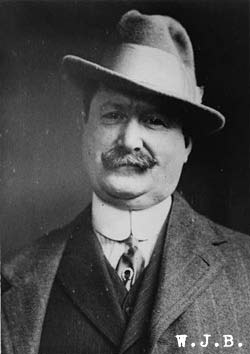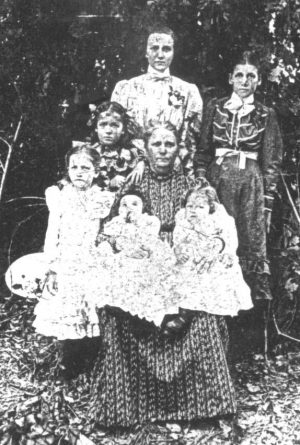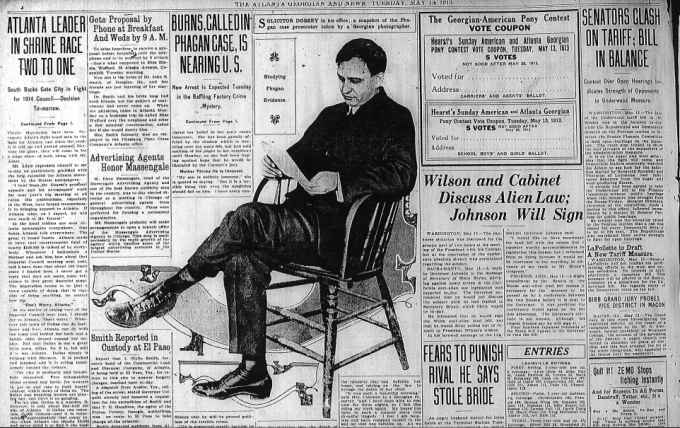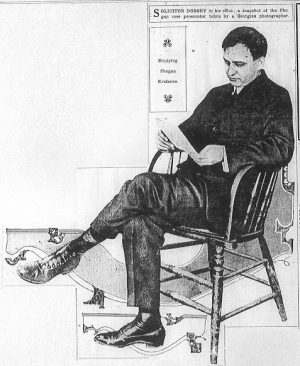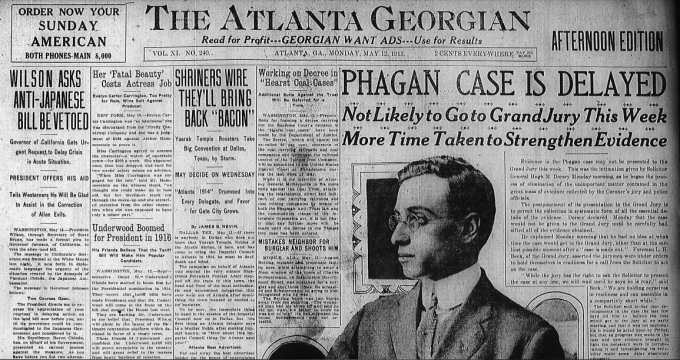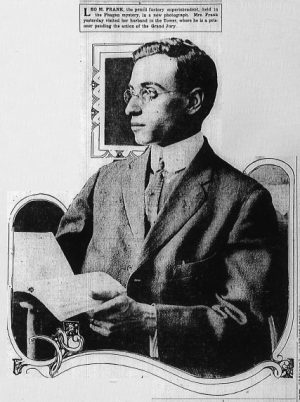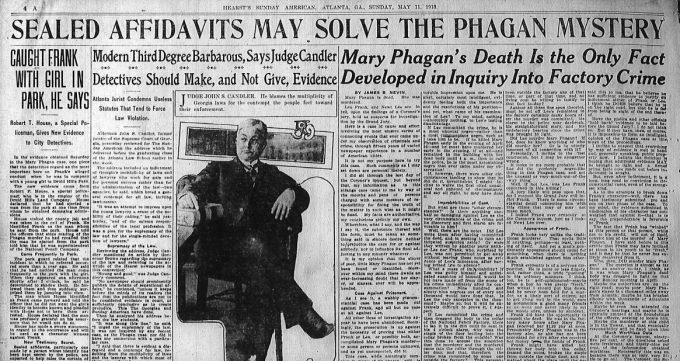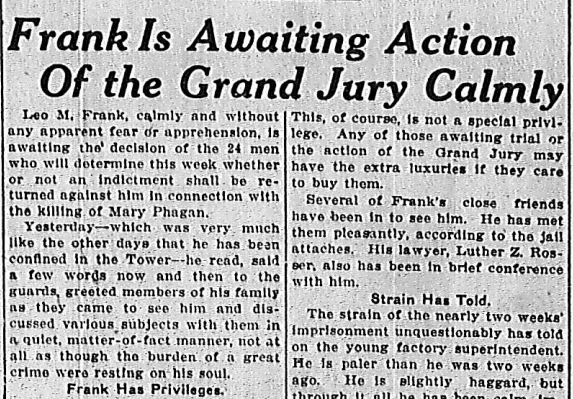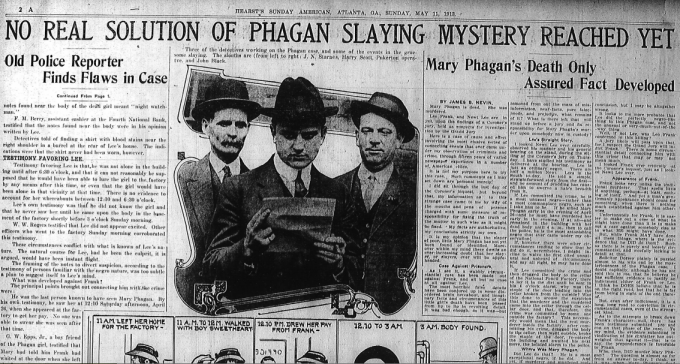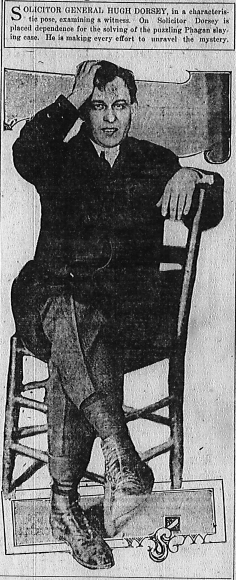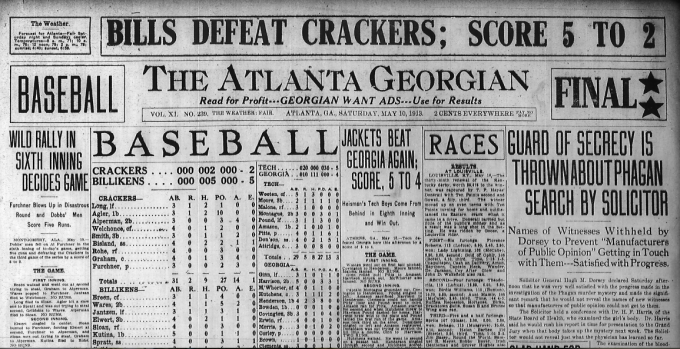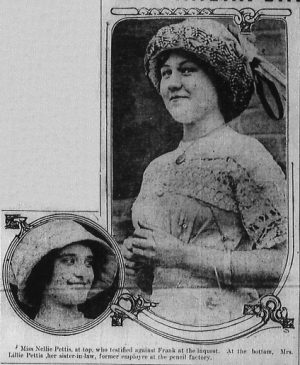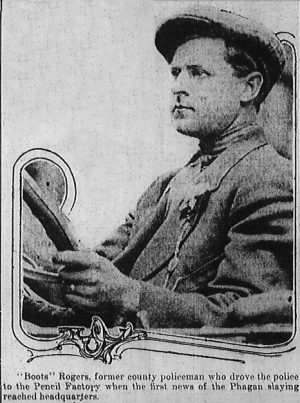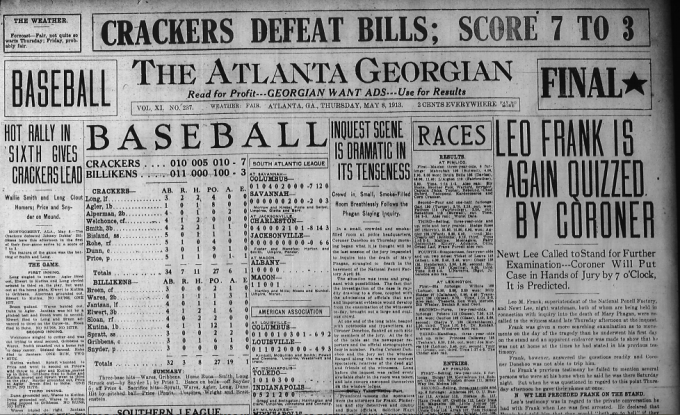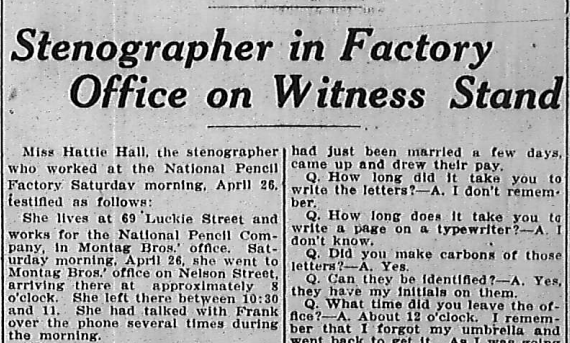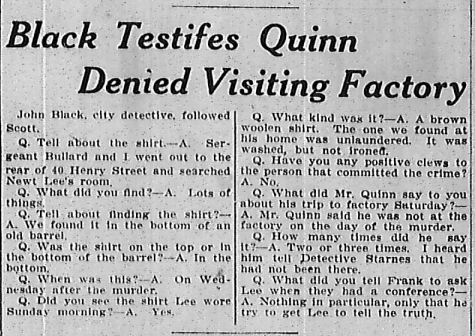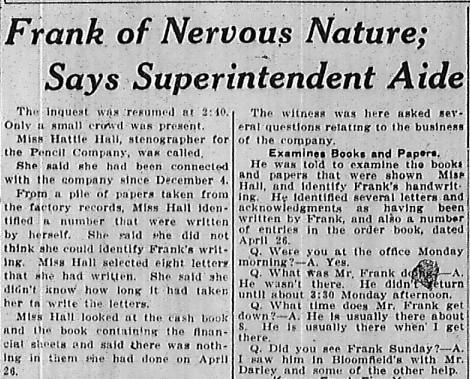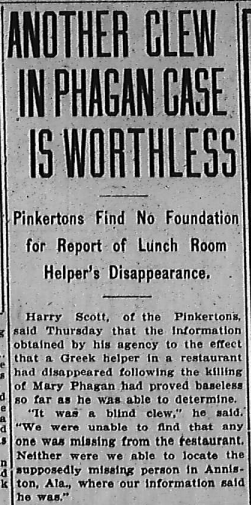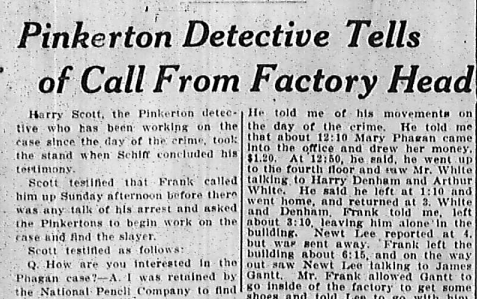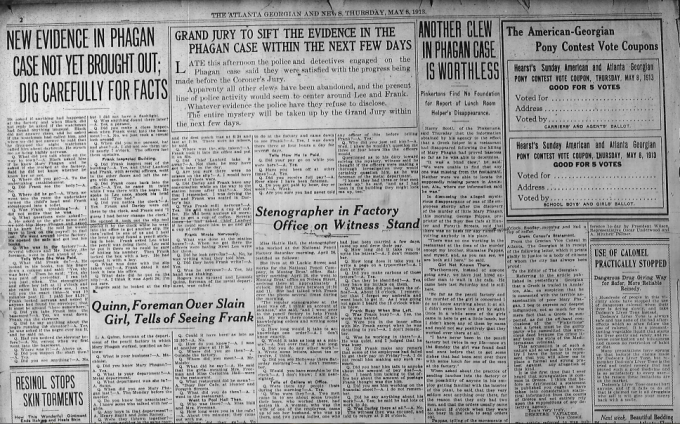Another in our series of new transcriptions of contemporary articles on the Leo Frank case.
Atlanta Georgian
Wednesday, May 14th, 1913
Probably Will Not Reveal Presence in City as He Investigates Phagan Case.
Colonel Thomas B. Felder said Wednesday that Detective William J. Burns had not arrived, as yet, in New York from his European trip, but that as soon as he did he undoubtedly would start at once for Atlanta to work upon the Mary Phagan strangling mystery.
Colonel Felder is acquainted with the day and the hour on which the famous sleuth will reach this city, but for the purposes of the investigation he is withholding the information.
“There was no authority for the statement that Detective Burns would be in New York Tuesday,” said Colonel Felder. “The date of his arrival has been known in my office, but it had not been made public.”
“It is quite likely that the great detective will come quietly and unannounced into the city, make his investigation of the mystery and slip out before many persons are aware from their own knowledge that he has been working on the case.”
In Touch With Burns Agency.
Colonel Felder has been in constant touch with Raymond Burns, son of the detective, who is secretary and treasurer of the Burns Agency, and has offices in New York. The agency is being placed in possession of the important new developments in the mystery as rapidly as they occur. An outline of the whole case will be laid before Burns the instant that he arrives at his New York offices. Continue Reading →

